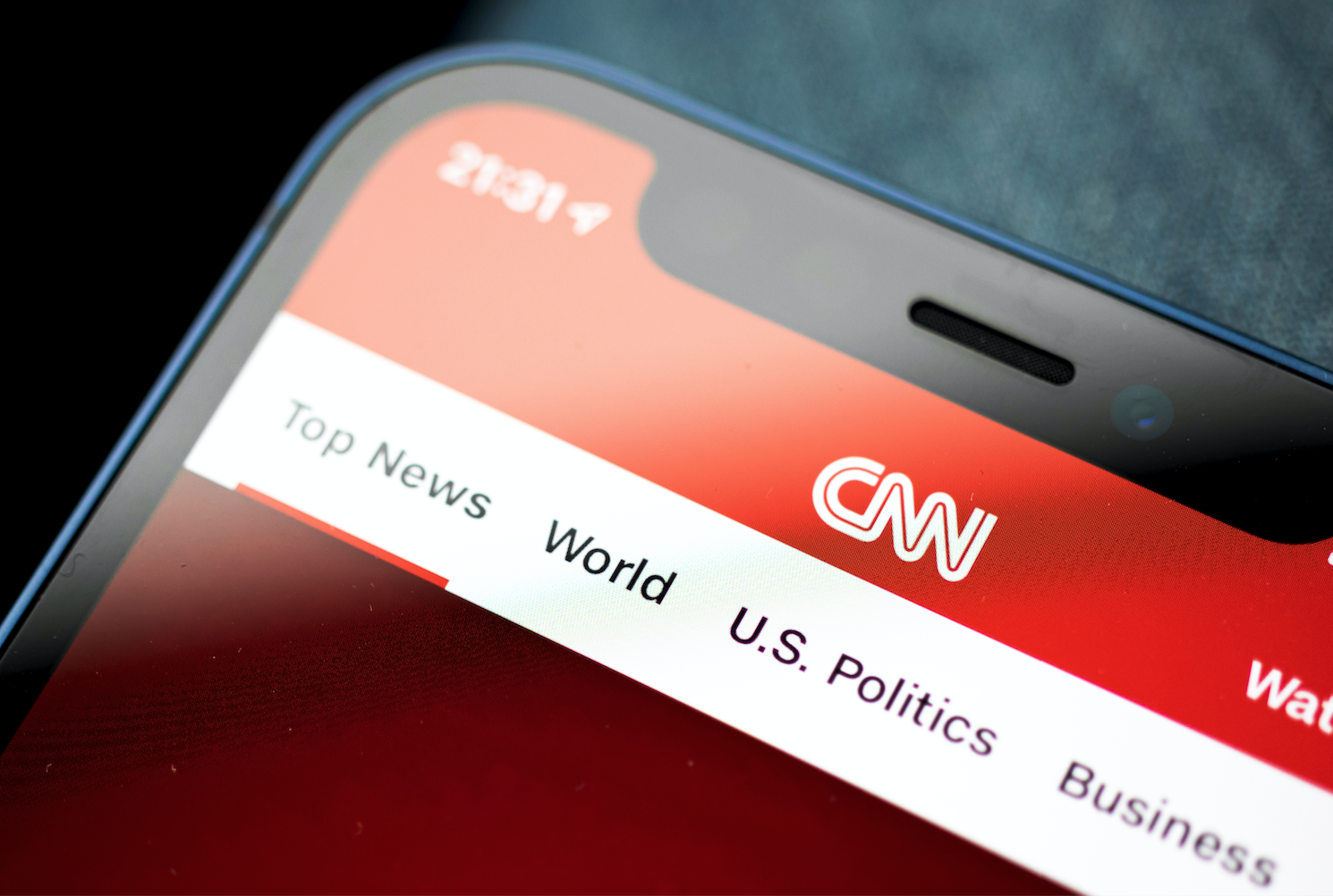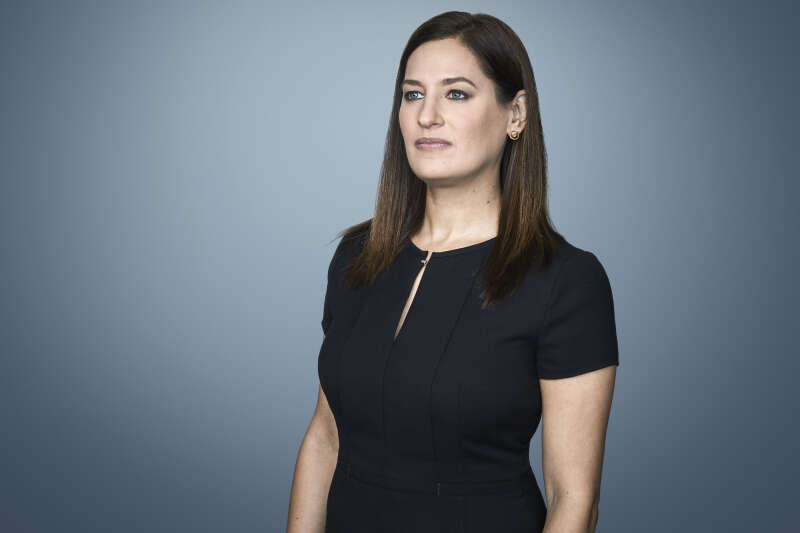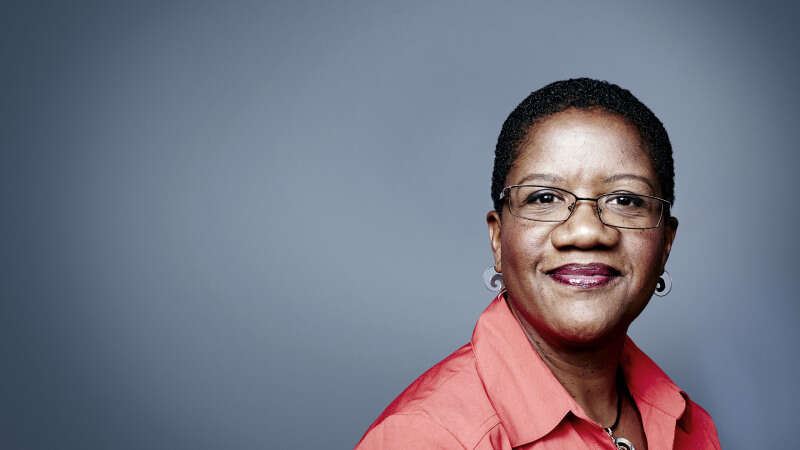
CNN this week announced two promotions at the top of its digital operation, which runs one of the world’s largest news websites. Rachel Smolkin has been promoted to vice president (VP) for news at CNN Digital after seven years heading up political coverage. Cathy Straight, previously executive editor of national news, was named VP of features and opinion for CNN Digital.
Both will report to Meredith Artley, editor in chief and SVP of CNN Digital Worldwide.
CNN has one of the world’s largest English-language news websites – second only to the BBC in terms of page views, according to SimilarWeb – and attracted an estimated 149m unique users in March.
Shortly after their promotions were announced, Press Gazette conducted an email interview with Smolkin and Straight.
[This interview first featured in Press Gazette’s ‘Future of News – US’ newsletter. Click here to sign up and receive this content first.]
‘I don’t think I’ve ever had an “average” day’

Question for both: In your new role, what would you expect your average day to look like? What time would you generally start and finish?
Smolkin (pictured above): “I’ve been at CNN for nearly seven years, and I don’t think I’ve ever had an ‘average’ day!
“We have digital editorial and network meetings in the mornings beginning at eight, and I spend time reading in and prepping before those start. I try to wrap between six and seven for dinner and family time, and then I read in again on our biggest stories and try to catch up on email (we have a lot at CNN).
“My days are a combo of making sure we’re in the right place on the news, planning meetings and discussions with reporters and editors. I partner very closely with my great colleagues in newsgathering. And my programming colleagues take the lead on programming for desktop, mobile and the app, but content distribution is a key component of all our jobs.”
Straight: “We all formally start our day with a digital content priorities discussion. Each day at 8am our global digital teams come together to talk about the news of the day. It’s a great way to kick start ideas and hear from a wide mix of voices on the team. It sets the tone and pace of the day and gets everyone on the same page.
“Before that meeting I like to read in, starting with our ‘5 Things’ newsletter, of course, and then work my way through our CNN content and a few other news sites.
“My day-to-day work will be focused on elevating and growing the coverage we call ‘content diversity.’ This is content that is rooted in the news of the day but takes us beyond that breaking news.”
Question for Smolkin: What do you think CNN Digital does especially well in news currently? And what will you be aiming to improve on in your new role?
Smolkin: “We are sharp and fast on the news. We are truly a global platform – our strong coverage of the devastating spread of Covid in India is just one example of our commitment to important stories around the world.
“We take a ‘facts first’ approach and are unafraid to call out lies and misinformation. We have a wonderful mix of analysis, enterprise and explanatory work through text, video, data and visual storytelling from some of the most talented journalists anywhere.
“The opportunity for growth is in pushing ourselves every day to serve our audiences better. The most important issues of our time – voting rights, climate change, policing, race and equality, the reopening of our schools and communities – fall into a shared space between politics and national news. We can be even more intentional in building out that work, connecting the dots and giving our audiences the information and storytelling they need to cut through all the noise.”
Priorities: Climate change, race and equality

Question for Straight: Are there any particular topic areas in which you’d like to see CNN Digital expand its coverage?
Straight (pictured above): “Our team can play an important role in telling the stories of how we come out of this pandemic. It has changed every facet of our lives in profound ways.
“My new team’s key topics of wellness, culture, opinion, travel and entertainment will be a key part of telling the stories of how we come out of this and what we have learned about ourselves and our world.”
[This interview first featured in Press Gazette’s ‘Future of News – US’ newsletter. Click here to sign up and receive this content first.]
Question for Smolkin: You are already involved in expanding CNN’s climate change coverage. How much of a priority will this be for CNN Digital in the coming years?
Smolkin: “A huge one. The climate crisis is one of the most important issues of our time, and we’re hiring a top-notch climate team to build on the great work CNN is already doing across the organisation. More to come on that soon.”
Question for Straight: You led the formation of CNN Digital’s race and equality team. What has the team achieved so far? And what CNN’s plans for future coverage of race and equality? How much of a priority will this be for CNN Digital in the coming years?
Straight: “The achievement I’m most proud of is the influence the new team has had in bringing more diverse voices and topics to our overall coverage. CNN Digital was covering race and equality before the formation of this team but having a team that is 100% focused on this beat has made a huge difference not just in our coverage of race, but in all of our coverage. And yes, this beat remains a priority for CNN.”
Question for Straight: You’ve been involved in building up some important newsletters for CNN, including ‘5 Things’ and ‘Good Stuff’. What are the main challenges of building up a newsletter audience? Why have these newsletters been a success?
Straight: “Staying true to the mission of ‘5 Things’ (getting you up to speed on the top stories of the day) and consistently listening to our audience has been a huge factor in the newsletter’s success.
“I also think the conversational, approachable voice of the newsletter helped us build a relationship with our audience. We wanted the newsletter to feel as if a really well-informed friend was breaking down the top stories of the day for you.”
Question for Smolkin: In your previous role, what were the main challenges of covering the Trump White House?
Smolkin: “Reporting the news swiftly and accurately without spreading falsehoods and misinformation. We had daily discussions about framing in headlines and stories and pausing to add context where it was needed. We started a fact-check team led by the wonderful Daniel Dale and created a fact-check database. We increased our focus on service and explanatory work on everything from impeachment to mail-in ballots.
“I tell my team often that we are doing our work in an incredibly important moment in history, and we need to do our absolute best every day to get the story right for our audiences.”
[This interview first featured in Press Gazette’s ‘Future of News – US’ newsletter. Click here to sign up and receive this content first.]
Question for Smolkin: What are the main challenges of covering politics post-President Trump? Have you witnessed a ‘Trump slump’/ a drop in interest in politics?
Smolkin: “We haven’t seen a drop in interest, but we are seeing a return to a slightly more normal news cycle, and the audience habits reflect that. That’s great for content diversity – we are seeing a wider variety of stories resonate, both in and out of politics. We are not in a post-Trump era, though. His hold on the Republican Party makes clear he’ll be a dominant force for years to come.”
‘I personally choose to engage in social media sites, particularly Twitter, in more limited ways’
Question for both: CNN journalists appear to experience a large amount of abuse/ trolling on social media sites. How do you deal with this personally? Does it affect you and your team?
Smolkin: “Our journalists have shown a determination to stay focused on their reporting despite the trolls.
“I personally choose to engage in social media sites, particularly Twitter, in more limited ways. I prefer to spend my time focusing on how we can do our best possible work for our audiences – including many who do not spend their days on Twitter.”
Straight: “We’ve all had some experience with this, yes. It’s easy to say it’s part of the job, but when the trolling is threatening, or racist or misogynistic we must call it out.”
Question for Straight: Would you ever commission Donald Trump to write an opinion article for CNN? If so, what would you ask him to write about?
Straight: “I would be more interested in a full-on interview with Donald Trump rather than an opinion piece.”
Question for Straight: If you could commission an opinion article from anyone in the world today, who would it be and what would you ask them to write about?
Straight: “It’s tough to name one person, but of course, we all have our wish list of big names. The thing I am most excited about in the opinion space is bringing more personal essays to our roster. I think we have an opportunity and an obligation to bring a diversity of thought, voices and themes to our opinion coverage.”
Question for Smolkin: What is the most important tool/ piece of technology for you in your job?
Smolkin: “The telephone. It’s great that we have so many ways to communicate, but nothing beats a good old-fashioned conversation.”
Top photo credit: Shutterstock/ FellowNeko
Email pged@pressgazette.co.uk to point out mistakes, provide story tips or send in a letter for publication on our "Letters Page" blog
